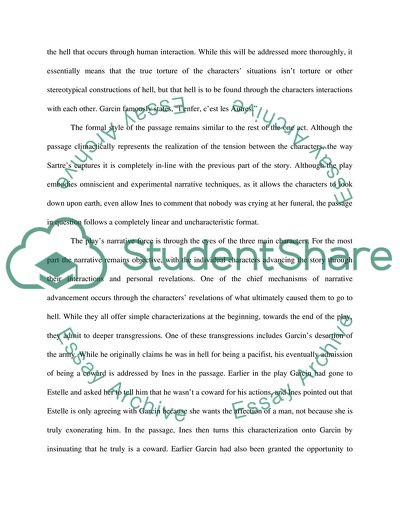Cite this document
(Critical Centary of a Passage from Sartre's Huis Clos Coursework Example | Topics and Well Written Essays - 1250 words, n.d.)
Critical Centary of a Passage from Sartre's Huis Clos Coursework Example | Topics and Well Written Essays - 1250 words. https://studentshare.org/visual-arts-film-studies/1731928-critical-commentary-of-a-passage-from-sartres-huis-clos
Critical Centary of a Passage from Sartre's Huis Clos Coursework Example | Topics and Well Written Essays - 1250 words. https://studentshare.org/visual-arts-film-studies/1731928-critical-commentary-of-a-passage-from-sartres-huis-clos
(Critical Centary of a Passage from Sartre'S Huis Clos Coursework Example | Topics and Well Written Essays - 1250 Words)
Critical Centary of a Passage from Sartre'S Huis Clos Coursework Example | Topics and Well Written Essays - 1250 Words. https://studentshare.org/visual-arts-film-studies/1731928-critical-commentary-of-a-passage-from-sartres-huis-clos.
Critical Centary of a Passage from Sartre'S Huis Clos Coursework Example | Topics and Well Written Essays - 1250 Words. https://studentshare.org/visual-arts-film-studies/1731928-critical-commentary-of-a-passage-from-sartres-huis-clos.
“Critical Centary of a Passage from Sartre'S Huis Clos Coursework Example | Topics and Well Written Essays - 1250 Words”. https://studentshare.org/visual-arts-film-studies/1731928-critical-commentary-of-a-passage-from-sartres-huis-clos.


